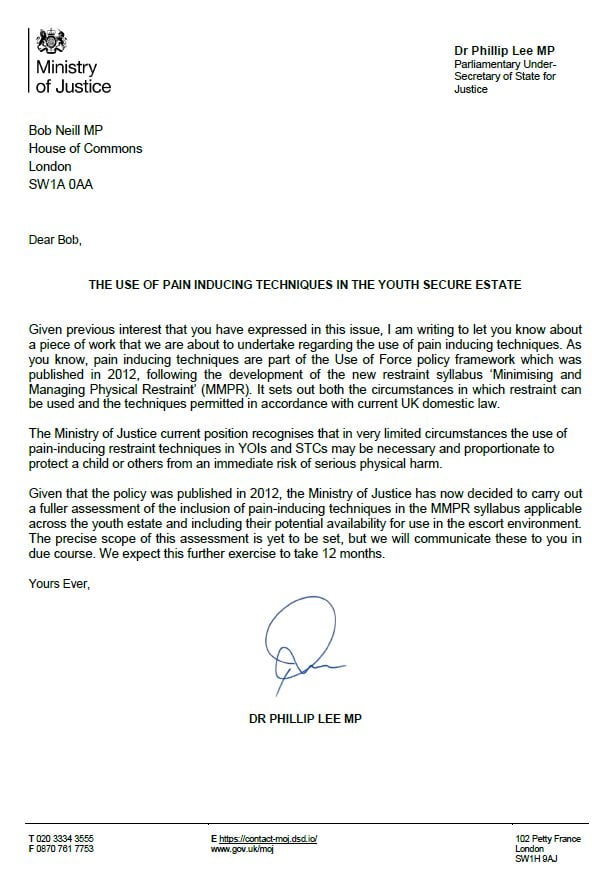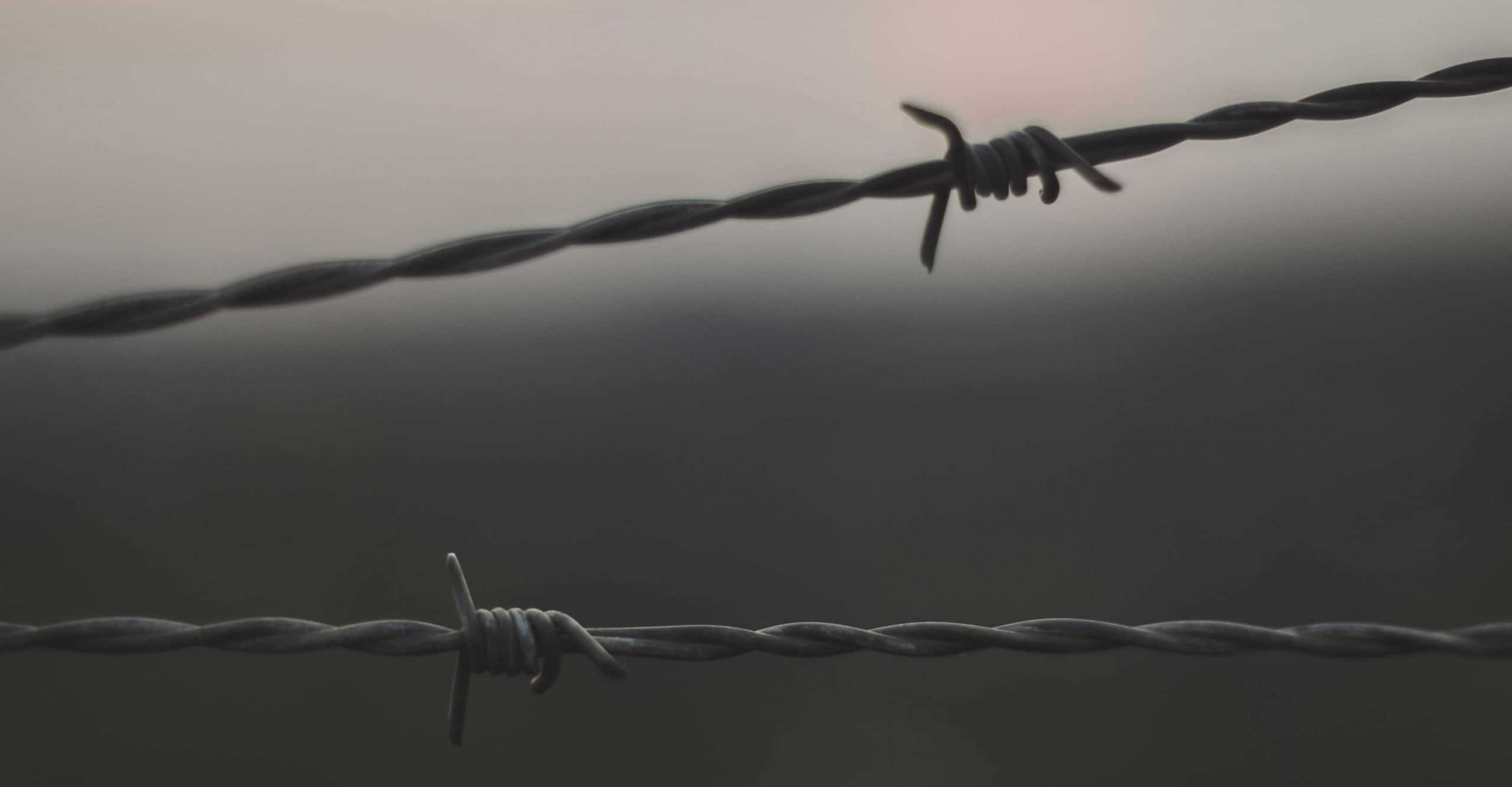97 incidents of asphyxiation
Last week (7 June 2018) it came to light that the MoJ is undertaking a 12-month assessment of the use of physical restraint techniques used with young offenders – specifically choke holds which are designed to induce pain and can cause asphyxiation.
I used the phrase “came to light” deliberately as there is no information about the review on the MoJ website. The information in this post comes from a letter from Phillip Lee, the Minister with responsibility for youth justice at the MoJ, to Bob Neill, Chair of the Justice Select Committee (see image of tweet below) and a Guardian article by Eric Allison and Simon Hattenstone.
According to the Guardian, the MoJ was forced into action by a campaign by Article 39, a charity which fights for children’s rights in institutional settings.
Here’s Article 39’s summary of their work:
In July 2017, Article 39 successfully crowd-funded to legally challenge the use of pain and unjustified restraint during children’s frightening journeys to and from secure children’s homes. Children can be detained in these locked children’s homes from as young as 10 years old.
Escort custody officers employed by GEOAmey are allowed to use force to make children follow orders. Incredible as it sounds, they have been authorised and trained to deliberately inflict pain on children as a form of restraint. This is in striking contrast to the rules that must be followed in secure children’s homes, which restrict when restraint can be used and prohibit the infliction of pain.
Through the enormous generosity of over 150 individuals and several organisations, we raised enough funds to cover our application for a costs capping order and to pay for unavoidable court fees and charges. We wrote to the Ministry of Justice on 1 August 2017, setting out our serious concerns and our intention to seek a judicial review should appropriate action not be taken to safeguard the rights of very vulnerable children.
The Ministry of Justice responded to our concerns in November. Very positively, we were told the government would review the authorisation of pain-inducing restraint during escorting. We submitted evidence in December 2017, and encouraged other experts to contribute too.

The MoJ’s youth justice statistics bulletin published in January this year revealed there had beena 7% decrease in the number of children in custody last year but a 5% increase in the use of force against them by staff.
A third of the approved MMPR methods are pain-inducing. Publicly available copies of the instructor training manual depicting the techniques contain 182 redactions. Article 39 has been engaged in a protracted legal dispute with the MoJ to bring this material into the public domain.
In a recent parliamentary answer to a question tabled by MP Emma Lewell-Buck, Dr Lee confirmed that the organisations charged with investigating claims of abuse arising from the use of restraint, such as the prisons and probation ombudsman, would not be given access to the MMPR manual.
Lewell-Buck responded:
How on earth can anyone know if the rules have been broken if they don’t know what the rules are? If this abuse was happening in, say, care homes for the elderly, it would be a national scandal. But nobody seems to care about these children.
Article 39’s director, Carolyne Willow, said the review was a welcome development but she feared that many in the prison and security sectors would defend the status quo. She concluded:
Prisons remain the only institutions where the deliberate infliction of pain on children is sanctioned. It will be up to all of us who work with and for children to reassure ministers that institutions can be run safely without the threat or imposition of pain.








